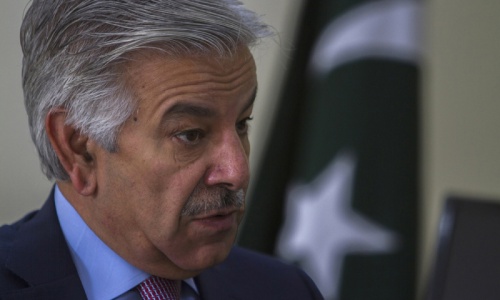WASHINGTON: The government will seek a national consensus on what action to take against the Taliban if talks with the outlawed TTP failed, Finance Minister Ishaq Dar said here on Monday.
Talking about the impact of terrorism on the national economy, he said this was a matter of national importance and that’s why the government had stayed in touch with all institutions and political parties on this issue, even those who were not in parliament.
“If the talks fail and other actions are to be exercised, then the whole nation will be united in supporting such an action,” he said.
Briefing the Pakistani media on his visit to Washington, Mr Dar said he had held more than 47 meetings with the US, IMF and World Bank officials and his counterparts from other countries during his week-long stay in the US capital. “And all of them agreed that the reforms introduced by the current government had put the national economy back on track,” he said.
The government, he said, was taking a number of steps for further improving the economy, which included expanding the tax net.
Mr Dar said if the government did not increase the tax net it would be forced to borrow more money from the lenders which it did not want.
He said assurances given to the IMF for obtaining a $6.7 billion loan last year required the government to improve tax collection, adding that the loans would have to be repaid and the government had no option but to collect more tax.
The defence budget, he said, could not be revisited, nor could the salary and pensions of government employees be reduced as they were already very low.
About his meetings with World Bank officials in Washington, the finance minister said the bank was ready to approve $700 million in May for the Dasu hydel project and irrigation projects in Sindh.
Other financial institutions, he said, were also willing to help Pakistan because they believed that the country’s GDP growth would surpass their earlier projections.
Mr Dar said Pakistan now had access to $1bn for the current year from the International Development Association and the World Bank was likely to approve the funds at its meeting next month. This unprecedented support from international financial institutions encouraged the government to undertake 19 major projects in the near future, including Dasu and Diamer-Bhasha dam projects.
Separately, during a meeting with British Secretary of State for International Development Justine Greening, Mr Dar said tax revenue had increased by 17 per cent and exports by 16pc this year, while the government was also contemplating to eliminate standard regulatory orders (SROs).
He said the government also planned $2 to $2.5bn of capital market transactions by the end of September, which included OGDC and PPL.
At a meeting with the finance minister, international rating agencies Standard and Poor and Moody’s hinted that if Pakistan continued to improve its economic performance it would improve its rating as well.
Mr Dar told representatives from the two agencies that Pakistan’s GDP was expected to increase from 3.6 to 7pc and the tax-to-GDP ratio from 8.5 to 13pc. The government also is determined to bring down inflation to 8pc.
Mr Dar rejected media reports that the country would once again face 10 to 18 hours of loadshedding as incorrect and said the government had already taken steps to ensure that such long power breakdowns were never repeated.
Paying the circular debt, he said, was “not a one-off thing,” he said, “we have a concrete plan for continuing to pay the debt on time”.
Similarly, he added, the government had taken a number of steps for increasing electricity production, improving transmission lines and distribution and revenue collection systems.














































